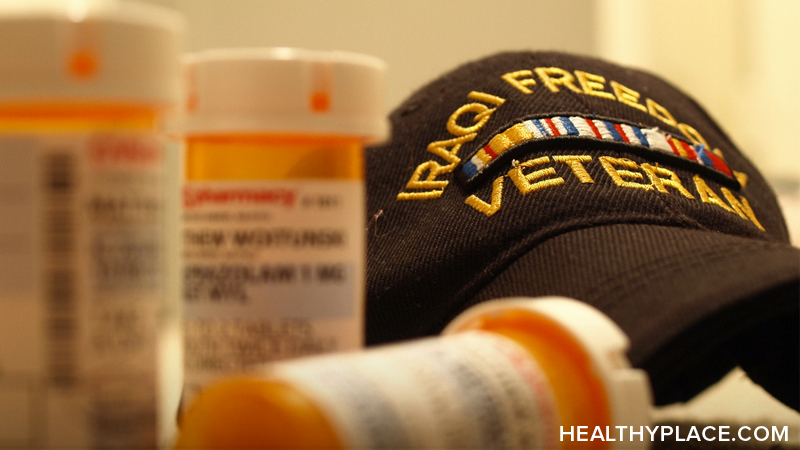PTSD Medications: Just How Effective Are They?

If you have posttraumatic stress disorder (PTSD), you may be considering PTSD medication (sometimes known as “meds” for PTSD). This is often a big decision, but many medications are used to help treat PTSD. The question remains, though, what medications are effective in treating PTSD and how effective are PTSD medications?
FDA Approved Medications for PTSD
There are only two medications approved by the Food and Drug Administration (FDA) in the United States for the treatment of PTSD. These two medications are selective serotonin-reuptake inhibitors (SSRIs) sertraline (Zoloft) and paroxetine (Paxil). Both of these medications are antidepressants and are used to treat the symptoms of PTSD as the underlying cause of the illness is not understood well enough to treat directly.
Medications for PTSD with the Strongest Evidence
The following medications should be, initially, tried as monotherapy (without other drugs) but may be augmented with additional medications if PTSD symptoms are not sufficiently treated. According to the U.S. Department of Veteran’s Affairs (VA), the following four medications have the strongest evidence base and they strongly recommend that they should be initially tried in PTSD medication treatment:
- Fluoxetine (Prozac) – an SSRI antidepressant
- Paroxetine (Paxil) - an SSRI antidepressant
- - an SSRI antidepressant
- Venlafaxine (Effexor) – a serotonin-norepinephrine-reuptake inhibitor (SNRI) antidepressant
If none of the above PTSD medications are effective, the medications with the next-greatest scientific evidence support are:
- Mirtazapine (Remeron) – an alpha-2 antagonist antidepressant
- Nefazodone (Serzone) – an SSRI antidepressant (no longer available)
- Tricyclic antidepressants (TCAs) such as amitriptyline (Elavil) or imipramine (Tofranil)
- Phenelzine (Nardil) – a monoamine oxidase inhibitor (MAOI) antidepressant
In order to get the best results, before trying an augmentation strategy (adding an additional medication), the VA recommends maximizing the dosage and allowing at least eight weeks for the person to respond to the PTSD drug. For those with partial response, another four weeks is recommended.
Not recommended as monotherapy for the treatment of PTSD are:
- Guanfacine (Intuniv)
- Anticonvulsants tiagabine (Gabitril), topiramate (Topamax), valproate (Depakote), lamotrigine (Lamictal) or gabapentin (Neurontin)
- Antidepressants bupropion (Wellbutrin), buspirone (BuSpar) or trazodone (Oleptro)
- Atypical antipsychotics
The VA also notes that not only are benzodiazepines not indicated for PTSD, but there is actually evidence against their use.
Monotherapy alpha-blocker prazosin (Minipress) for PTSD is not indicated but using prazosin adjunctively for the treatment of sleep and nightmare concerns may be warranted (Understanding PTSD Nightmares and Flashbacks).
It should be noted that not all doctors agree on the above conclusions.
Should Medical Marijuana Be Used to Treat PTSD?
While there are anecdotes suggesting that some with PTSD may find medical marijuana helpful, this has not been borne out in studies. Not only has medical marijuana for PTSD not been shown effective, but it has actually been shown to be harmful. For more information, please see Marijuana and PTSD: Is It Helpful or Hurtful?
APA Reference
Tracy, N.
(2021, December 18). PTSD Medications: Just How Effective Are They?, HealthyPlace. Retrieved
on 2026, January 24 from https://www.healthyplace.com/ptsd-and-stress-disorders/ptsd/ptsd-medications-just-how-effective-are-they


